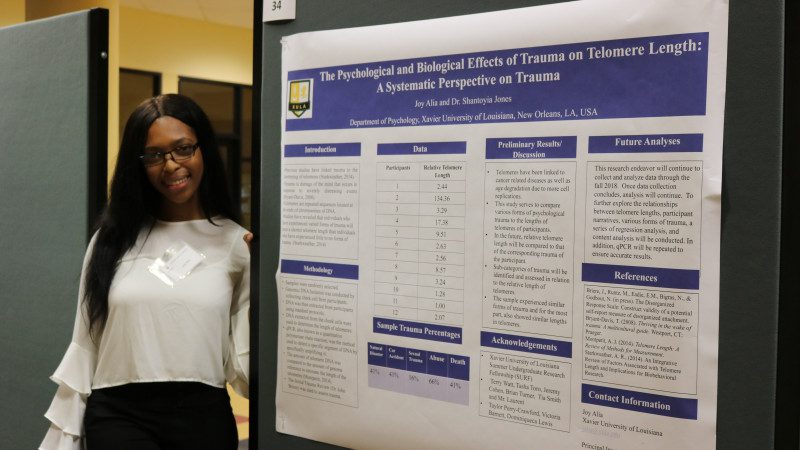Black Perspectives Matter: Why (and How) to Enter the Field of Psychology

The mental health challenges and crises Americans faced during the height of the pandemic have been well documented. This hadn’t significantly improved by 2024, with 23% of Americans experiencing mental illness through the years that followed. The good news is that, as mental health awareness grows and becomes more normalized, more people are now seeking or considering seeking some form of professional care. The bad news? There’s a serious national shortage of providers in psychology and psychiatry.

Mental Health Among Black Americans
Black individuals can suffer from all of the same or similar struggles as their white counterparts. However, they can also experience the added burden of lasting issues related to racial and intergenerational trauma, police brutality, legal injustice, routine microaggressions, and other forms of continuing inequality. Chronic stress and trauma are among the greatest risk factors for various mental health conditions, and populations facing prejudice are known to shoulder these burdens at disproportionate rates.
Racial Inequities in Mental Healthcare
Despite the great need for mental health resources, many obstacles often prevent African Americans from receiving care. These can include any of the following, and more:
- A lack of adequate health insurance coverage and/or unaffordable out-of-pocket mental healthcare costs
- Living in underinvested communities where high-quality healthcare facilities and providers aren’t easily accessible (also known as “medical deserts”)
- Routinely having their general health concerns downplayed or dismissed by biased providers
- Feeling pressure to code-switch in the presence of care providers rather than being open and authentic about mental health challenges
- A historical distrust of American healthcare systems because of past and current ethical violations
- A cultural stigma often associated with mental health issues in Black communities
The Need for Black Mental Health Professionals
Still another barrier is the fact that, as of 2020, 85% of psychology professionals in America were white, while just 2% were Black. This makes it nearly impossible for African Americans to find a culturally competent or empathetic care provider who understands their experiences. Since having a sympathetic understanding of racial history and shared realities is essential for facilitating effective care outcomes, having a diverse workforce in the mental health field is key to offering equitable care and resources for everyone.
HBCUs Can Help You Start a Career in Psychology
Given the recent Supreme Court ruling on affirmative action in college admissions, more Black students are likely to turn to historically Black colleges and universities (HBCUs) for their education. In response, these institutions will do everything they can to meet increased student demand. HBCUs help more students earn college degrees, compete successfully for well-paying jobs in competitive career fields, improve workforce diversity, and move from poverty into the middle class.
People of all ages, races, and life paths can help to improve diversity in American psychology disciplines by supporting scholarships and other forms of funding for HBCUs with related programs. You can make a difference in the lives of psychology students—and their future patients—in one easy step by making a donation today.
Types of Psychology Disciplines
In part because the field of mental health isn’t often prioritized or objectively portrayed in American culture, many do not have a clear idea of how many career choices there are in it. Yet the field of psychology offers diverse specializations. Some of these include the following:
- Forensic psychology
- Clinical psychology
- Social psychology
- Industrial-organizational psychology
- Counseling psychology
- Developmental psychology
- Child psychology
- Neuropsychology
- School psychology
- Sports psychology
Careers in Psychology
Psychology graduates can pursue careers in a wide variety of capacities. Just a few of these include:
- Counselor (career counselor, grief counselor, life coach, school counselor, substance abuse counselor)
- Therapist (applied behavioral analyst [ABA], cognitive-behavioral therapist [CBT], creative arts therapist, marriage and family therapist)
- Psychologist (clinical psychologist, industrial-organizational psychologist, forensic psychologist, school psychologist, sports psychologist, neuropsychologist)
- Social worker (child and family social worker, clinical social worker, school social worker)
Regardless of which concentration you’re interested in, you’ll need to enroll in a bachelor’s degree program, and very possibly a graduate program afterward. Psychology students take a wide range of related course subjects, including:
- Introductory psychology
- Fundamentals of research
- Social psychology
- Behavioral psychology
- Abnormal psychology
- Developmental psychology
- History of psychology
- Biopsychology or neuropsychology
- Cognitive and affective bases of behavior
- Lab courses
Want to learn more about this possible career path and college major? Have questions about which UNCF colleges and universities offer this program? Looking for help with financing this degree?
Click Here So We Can Help You!

Preparing for Success
More than most other fields, psychology draws from a wide variety of disciplines. In high school, some courses that are especially worth considering include AP Psychology, AP Biology, AP Statistics, and Health Sciences. Refining communication skills in English or related classes will be helpful in communicating with potential patients or colleagues down the line.
As you explore colleges to apply to, find out what opportunities are available outside the classroom. Is there a Psi Chi (psychology honor society) chapter? Is there a psychology club? What internship opportunities have students participated in? What research opportunities are available? Find a school that puts effort into getting its students active and connected in the workforce.
UNCF Schools To Consider
To enter this field, students must at minimum earn an associate’s or bachelor’s degree, although many careers require master’s and doctoral degrees. These UNCF-member schools offer programs in psychology:
- Tuskegee University
- Spelman College
- Clark Atlanta University
- Xavier University of Louisiana
- Johnson C. Smith University
- Claflin University
- Virginia Union University
- Tougaloo College
- Morehouse College
- Florida Memorial University
- Oakwood University
- Huston-Tillotson University
- Fisk University
- Talladega College
- Bethune-Cookman University

Tuskegee University
Professional Organizations
There are also many professional organizations that can provide more insight into some of the specializations in this discipline. A sample list includes:
- American Academy of Child and Adult Psychiatry (AACAP)
- American Counseling Association (ACA)
- American Mental Health Counselors Association (AMHCA)
- American Psychiatric Association
- American Psychoanalytic Association (APsA)
- American Psychological Association (APA)
- National Association of School Psychologists (NASP)
- Association for Behavioral and Cognitive Therapies (ABCT)
Scholarships Available
There’s no better way to start on your path to a successful career in psychology than with a solid financial foundation. Fortunately, many scholarships are available through UNCF, including some specifically for psychology majors. Keep an eye on the UNCF website for current scholarship opportunities and announcements.
Search for specific scholarships and view those that are currently accepting applications here! Students should also check with each college or university to see if there are additional scholarships available to study psychology.
As you explore your options, be sure to use our guide to applying for scholarships and grants. You can also receive guidance by submitting a major interest form if you are interested in a career in psychology. Submit the form on our website to get started. And follow us on UNCF social media channels to receive notifications about our scholarships and member HBCUs. Reach out today!
You can also show your support for students pursuing careers and furthering equity in psychology by making a contribution to UNCF member schools. Education is the greatest tool we have in creating a just and equitable society in which economic mobility is available to all. Help us achieve this future by donating today!
- Bethune-Cookman University
- Claflin University
- Clark Atlanta University
- Fisk University
- Florida Memorial University
- Huston-Tillotson University
- Johnson C. Smith University
- Morehouse College
- Oakwood University
- Spelman College
- Talladega College
- Tougaloo College
- Tuskegee University
- Virginia Union University
- Wilberforce University
- Feature Article
- Career Ideas
- Funding Your Degree
- HBCUs
- Member HBCUs